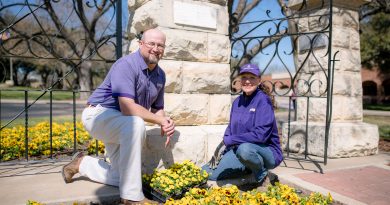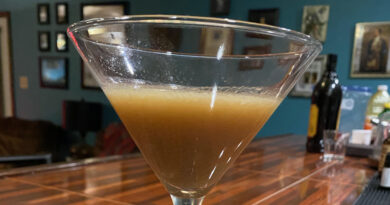Helping Mothers AdaPT with Custom Physical Therapy
 Meredith Kennedy
Meredith Kennedy
Physical Therapist | AdaPT
By RACHEL STRICKLAND | Photo by SKEEBO
Ever since she saw a physical therapist providing aquatic therapy to a child in a swimming pool, Meredith Kennedy knew that she wanted to pursue a career in the field. What she didn’t know at the time was that she’d eventually have her own mobile clinic and find a passion for helping women through maternity and postpartum physical therapy.
Kennedy went to Belton High School where she first started observing physical therapists, which helped solidify her career choice in her mind. She went to the University of Texas for undergrad and then the University of Texas Medical Branch in Galveston for graduate school, which is where she received her Doctor of Physical Therapy degree.
As a DPT, Kennedy can diagnose injuries, which means she can accurately determine if a patient is a good candidate for physical therapy, or if they need to go to a physician for further treatment.
Kennedy began her own mobile clinic, AdaPT, in July 2020 when she was living in Houston. In May 2021, her family moved to Salado, which is where her clinic is now based.
Because it’s a mobile clinic, there’s no physical address for patients to visit. Instead, Kennedy goes to patients’ houses. She said she will meet some of her patients in their backyard, garage or even at their local gym. She has contracts with some gyms in the area so that she can treat patients there.
Mobile clinics are becoming more popular, Kennedy said, explaining that she chose to go the mobile route because of the lack of one-on-one attention that is common in typical physical therapy clinics. She also noticed that sometimes patients struggled to carry-over what they’d learned in a session to their everyday lives.
“Maybe their equipment’s slightly different,” Kennedy said. “Or maybe they don’t have a table or an area to do their exercises in.”
Essentially, she felt that patients would be more likely to succeed with their therapy if she helped them in their home with their own equipment and showed them exactly where to do their exercises.
“I wanted to be in the patient’s environment. I wanted to rehabilitate them in their normal environment that they’re most comfortable in,” she said.
Kennedy is also an adjunct professor at the University of Mary Hardin-Baylor in the physical therapy department where she teaches graduate-level musculoskeletal courses. Her courses teach hands-on techniques.
While she enjoys the lecture section of her classes, it’s the lab portion that she really loves because of the interactive element. “It’s fun,” she said. “I love doing it. I get to interact with the students, and it’s just a great environment.”
Most of Kennedy’s background and experiences are in sports medicine and orthopedic injuries. However, since having children, she’s developed a passion for helping women who are pregnant or postpartum, and that’s the area in which she’s been trying to focus and grow.
“I feel like we’re missing treatment for that period of our lives,” she said. “Honestly, that’s why I created my company.” She named her clinic AdaPT because mothers are always adapting to new roles in life. While she still treats orthopedic injuries at her clinic as well, she really would like to expand her pregnancy and postpartum clientele.
Kennedy’s maternity and postpartum treatments mainly consist of education. She said women’s bodies are constantly changing throughout pregnancy and afterward, which is why learning what’s going on is important.
Even postpartum, she said, ligaments are lax and joints are loose, so learning techniques for how to move, hold the baby, and increase stabilization in the hip and pelvic region can drastically reduce pain and discomfort.
There’s no denying that Kennedy’s clinic and approach to health care are unique. Not only does she not accept insurance, which allows her more leeway with treatment plans, she also acknowledges that her approach is very patient-oriented.
“I might have two clients who have the same exact diagnosis, but because I have more time to spend with them, I can give them individualized care,” she said.
It’s clear that Kennedy has a passion for what she does. “I really just love helping people,” she said. “And people come to physical therapy because they want to get back to their livelihood. They want to get back to doing their sport or just being able to get on the floor and play with their kids or grandkids. And I want to help them get back to what they love doing.”




